Description
Halal Frozen Lamb Meat: A Complete Guide for Buyers and Consumers
Introduction
In recent years, the demand for halal frozen lamb meat has increased rapidly across global markets. Whether it is the Middle East, Europe, North America, or Asia, Muslim and non-Muslim consumers alike are turning to halal-certified meat for its guaranteed quality, ethical processing, and reliable sourcing. Frozen lamb, in particular, has gained popularity because it is convenient, cost-effective, and easily transported across borders without compromising freshness.
This article explores everything you need to know about halal frozen lamb meat—from halal certification and production processes to nutritional benefits, global demand, market trends, and tips for choosing the right supplier.
What Does Halal Frozen Lamb Meat Mean?
Understanding “Halal”
The word halal means “permissible” in Arabic and refers to food and drink that are allowed under Islamic dietary laws. For meat to be considered halal, the animal must be slaughtered according to Shariah guidelines. This involves:
-
Slaughtering by a Muslim who invokes the name of Allah.
-
A swift cut to the throat that ensures minimum suffering.
-
Complete drainage of blood from the carcass.
-
The animal must be healthy at the time of slaughter.
Frozen Lamb Meat Explained
Frozen lamb meat refers to lamb that is slaughtered, processed, and then frozen at extremely low temperatures to preserve freshness. Unlike chilled lamb, which has a shorter shelf life, frozen lamb can last for months without losing its taste, texture, or nutritional value.
When combined, frozen lamb meat ensures consumers receive both religiously compliant and hygienically preserved meat.
The Importance of Halal Certification
Halal certification is not just a religious requirement but also a mark of food safety and quality assurance. Certified halal frozen lamb meat undergoes strict monitoring by recognized halal authorities, ensuring:
-
The entire supply chain, from farm to packaging, follows Islamic principles.
-
No contamination with non-halal products.
-
Compliance with international food safety standards.
This certification is particularly important for global trade, as it builds trust with Muslim consumers worldwide.
Why Consumers Prefer Halal Lamb Meat
1. Ethical Treatment of Animals
Halal slaughter emphasizes humane methods, ensuring the animal is treated with respect and care.
2. Hygienic and Safe Processing
The halal process requires complete drainage of blood, reducing the risk of harmful bacteria.
3. Longer Shelf Life
Freezing preserves lamb meat for several months, making it easier for businesses to store and transport.
4. Availability in Global Markets
Frozen meat can be shipped internationally, allowing consumers worldwide to access high-quality halal lamb.
5. Versatility in Cooking
Frozen lamb is ideal for a wide range of dishes, from Middle Eastern kebabs to European roasts and Asian curries.
Nutritional Value of Halal Lamb Meat
Lamb is not only delicious but also nutrient-dense. A 100g serving of lamb contains:
-
Protein: Essential for muscle growth and repair.
-
Iron: Supports blood health and prevents anemia.
-
Zinc: Boosts immunity and metabolism.
-
Vitamin B12: Important for nerve function and red blood cell production.
-
Healthy fats: Provides energy and supports brain health.
Because frozen lamb is preserved at ultra-low temperatures, it retains most of its nutritional value, making it as healthy as fresh meat.
The Global Demand for Halal Frozen Lamb Meat
Middle East and North Africa (MENA)
The Middle East is one of the largest importers of halal lamb due to high consumption during festivals like Eid al-Adha and Ramadan. Countries like Saudi Arabia, UAE, and Qatar rely heavily on imports.
Europe
With growing Muslim populations in countries like the UK, France, and Germany, the demand for halal-certified meat continues to rise. Frozen lamb is particularly popular in supermarkets and halal butcher shops.
Asia-Pacific
Countries like Malaysia, Indonesia, and Singapore prioritize halal-certified meat imports to cater to their majority Muslim populations.
North America
In the US and Canada, halal frozen lamb is increasingly available, not only for Muslim communities but also for health-conscious consumers seeking ethically sourced meat.
Key Exporting Countries of Halal Frozen Lamb Meat
-
Australia – Known for its grass-fed lamb and strict halal certification processes.
-
New Zealand – A leading exporter with high-quality lamb products.
-
India – Supplies a significant share of halal frozen lamb to Middle Eastern countries.
-
Pakistan – Another growing player in the halal meat export market.
-
Turkey – Serves both domestic and international halal meat demands.
The Freezing Process and Quality Control
To maintain premium quality, halal frozen lamb undergoes strict freezing and storage processes:
-
Immediate Freezing – Meat is frozen soon after slaughter to lock in freshness.
-
Blast Freezing – Rapid freezing at -40°C ensures minimal ice crystal formation, preventing texture damage.
-
Cold Chain Management – The meat is transported in temperature-controlled containers to avoid thawing.
-
Packaging Standards – Vacuum-sealed packaging prevents contamination and extends shelf life.
Choosing the Right Halal Frozen Lamb Meat Supplier
When sourcing halal frozen lamb, businesses and consumers should look for:
-
Verified Halal Certification from recognized bodies.
-
Transparent supply chains with full traceability.
-
Cold chain compliance for guaranteed freshness.
-
Competitive pricing without compromising quality.
-
Positive reputation in the global market.
Common Cuts of Halal Frozen Lamb Meat
-
Lamb Leg – Ideal for roasting or grilling.
-
Lamb Shoulder – Perfect for slow cooking and curries.
-
Lamb Ribs/Chops – Popular for barbecues and pan-frying.
-
Lamb Shank – Best suited for stews and braised dishes.
-
Ground Lamb – Versatile for kebabs, meatballs, and patties.
Popular Dishes Made with Halal Frozen Lamb
-
Middle Eastern Lamb Kebabs
-
Indian Rogan Josh
-
Moroccan Lamb Tagine
-
Greek-Style Roast Lamb with Herbs
-
Lamb Biryani
These dishes highlight the versatility of frozen lamb across different cuisines.
The Future of the Halal Lamb Meat Industry
With global Muslim populations expected to grow to 2.2 billion by 2030, the demand for halal-certified products will continue to rise. Advancements in freezing technology, sustainable farming, and blockchain-based traceability will further strengthen consumer confidence in halal frozen lamb meat.
E-commerce platforms and online halal meat delivery services are also expanding, giving consumers more convenient access to halal lamb worldwide.
Conclusion
Halal frozen lamb meat is more than just a dietary choice—it represents a blend of religious values, ethical practices, global trade, and modern convenience. Whether you are a wholesaler, retailer, or everyday consumer, choosing halal frozen lamb ensures that you enjoy meat that is not only delicious and nutritious but also prepared with respect and care.
As the world continues to embrace halal-certified foods, halal frozen lamb meat will remain a cornerstone of international trade and consumer preference.

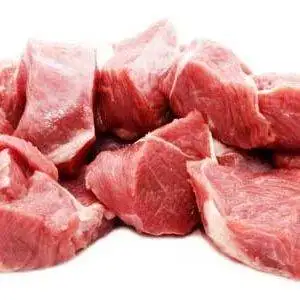
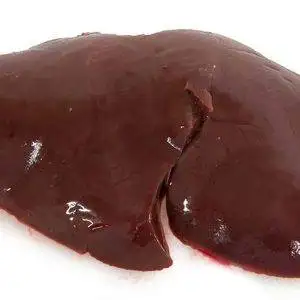
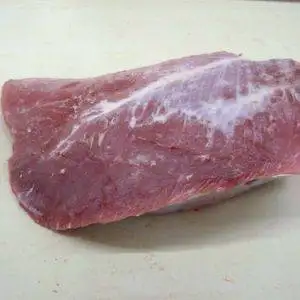
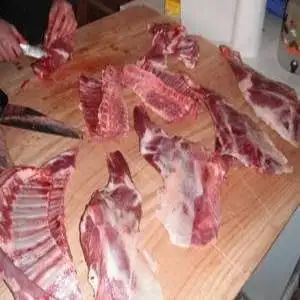
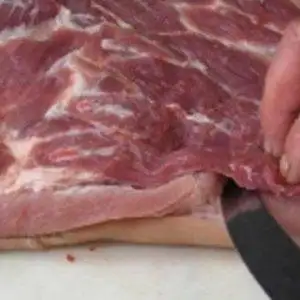
Reviews
There are no reviews yet.